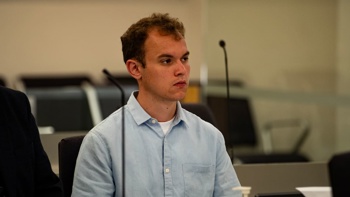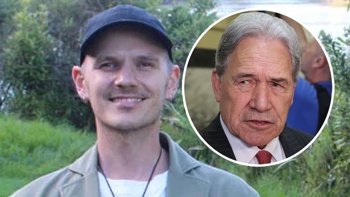

The lawyer for a man charged in a major drug operation has urged the jury to acquit his client, saying police appeared to have abandoned their policies and practices in the case.
Currently before a jury inthe High Court at Wellington, Sunia Mano To’ofohe denies 15 charges including possession of methamphetamine, cocaine and cannabis, possession of a firearm and ammunition, supplying methamphetamine and failing to assist in a search.
The 45-year-old was arrested in May 2023 as part of Operation Elusive, which targeted a large-scale drug dealing operation.
During the search, police allege they seized numerous items, including 11kg of methamphetamine, $600,000 in cash and 17 cell phones.
Opening his case, defence lawyer Keith Jefferies told the jury on Friday, it was a case in which police had abandoned their procedures and practices.
As a result, the case had not been proven beyond reasonable doubt and the jury should acquit.
Jefferies called his only witness — private investigator Mark Greene.
The former police officer spent 36 years in the force. As a detective senior sergeant in Waikato, Greene told the court he oversaw a number of investigations in the district.
Greene was critical of the way police collected, handled and processed the drug exhibits.
“For a case as important as this I would expect much better recording and attention to detail,” he told the court.
He was critical of a detective’s abbreviation on one exhibit and told the court note keeping relating to the storage of exhibits, lacked detail.
This had damaged the chain of evidence, he said.
But in cross-examination by Crown Prosecutor Tim Bain, Greene conceded he had not listened to the past week of evidence from members of the investigation team.
While Greene agreed it was appropriate to examine exhibits at the police station, if police were overwhelmed — as he believed they were in this case — they should have put a scene guard at the flat overnight and taken several days to search the house, he said.
“I think if they’d taken more time and reported more detail it would have been better for their case”, he said.
Police: You’re suggesting that we kick people out of their house
Also on Friday, Detective Som Fields, who was responsible for the hundreds of exhibits police seized, was questioned by Jefferies.
The defence was critical of the decision not to send all the seized drug exhibits to ESR for testing, the failure to record all the exhibits at the scene and to record the exhibits electronically, rather than on paper.
Earlier, Fields’ boss, Detective Senior Sergeant Trevor Collett told the court the drug samples were not taken to ESR’s facility at Kenepuru, north of Wellington, because they did not test for drugs.
Fields clarified that while drugs were not tested at Kenepuru they could be delivered there, with ESR arranging for them to be couriered to their drug facility in Auckland.
Fields denied a suggestion that the items police seized after the arrest differed from the exhibits in the 11 photo booklets handed to the jury.
But it was Jefferies’ suggestion police should have processed all the exhibits in the room at To’ofohe’s Lower Hutt flat, where he lived with others, when To’ofohe was arrested that drew a swift response from the exhibits officer.
“You’re suggesting that we kick people out of their house and put them into temporary accommodation, put their animal into kennels, have scene guards?” she said.
She pointed out the practical problems of his suggestion, including having to deal with unreliable internet, a lack of equipment and the absence of a clean, tidy, sterile space to examine each exhibit.
The court heard there were so many exhibits, police worked through the night to collect them all from the messy and crowded bedroom, finally delivering them to Police National Headquarters at 5am, where they were locked in a safe, inside a secure room on a floor with restricted access. It took police two weeks to process them all.
The Crown addressed the question of why paper records were no longer the preferred method for police when cataloguing exhibits, with Bain asking Fields if she knew how to cross things out, remove a page from her notebook or use a Vivid marker and white out liquid.
Fields said she did, adding it was much harder to change a computer record than a paper one. Police digitised their exhibit records in 2019 making them more secure and transparent, she said.
Today Crown and defence gave their closing addresses, with Justice Cheryl Gwyn expected to sum up the case for the jury tomorrow.
Catherine Hutton is an Open Justice reporter, based in Wellington. She has worked as a journalist for 20 years, including at the Waikato Times and RNZ. Most recently she was working as a media adviser at the Ministry of Justice.

Take your Radio, Podcasts and Music with you









